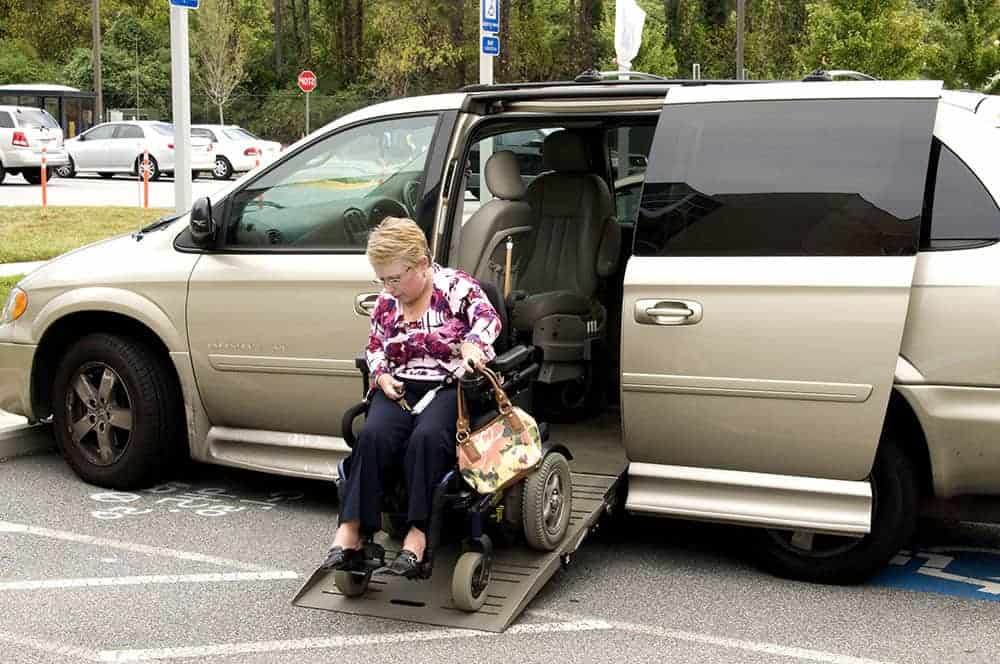Motability research on transport accessibility shows disabled people worse off since the pandemic
Research commissioned from the charity Motability shows that many disabled people experience continued uncertainty around risks to their health and wellbeing when leaving their homes
Over 2,000 people, including disabled people, parents and guardians of disabled children and non-disabled people, were asked about their experiences travelling during and after the Covid-19 pandemic.
The impact of the pandemic has compounded pre-existing barriers to transport, including: inaccessible infrastructure, attitudes and behaviours of non-disabled passengers and concerns about the increased cost-of-living
Motability commissioned BritainThinks to conduct research into how experiences of travel and transport have changed for disabled people since the Covid-19 pandemic began and what this might mean for access to transportation in the future. The study found that many disabled people experience continued uncertainty around risks to their health and wellbeing when leaving their homes, as a result of the pandemic.
The research shows the impact of the pandemic has compounded pre-existing barriers to using both public and private modes of transport, including: inaccessible infrastructure, attitudes and behaviours of non-disabled passengers and concerns about the increased cost-of-living.
Inaccessible infrastructure, unreliable information and services across public transport has worsened during the pandemic. 38% of disabled people surveyed felt that they had to undertake significant planning to make a journey during the pandemic, compared to 25% of non-disabled people. Many of those surveyed cited transport information as even more unreliable since before the pandemic and a reduction in staff, including at train stations, meaning support was often unavailable.
Those surveyed described experiences of being challenged by others as to their support needs, having to advocate for the use of disabled spaces and a lack of awareness of non-visible impairments. 1 in 3 (32%) disabled people surveyed said they found the attitudes and behaviours of other passengers or motorists a challenge when travelling during the pandemic. Early on in the pandemic, those who were exempt from wearing masks experienced being challenged on this, whereas those who were continuing to wear masks in June/July 2022 said they felt stigmatised for doing so.
During the pandemic, those who had access to their own car overwhelmingly chose to travel this way, due to risk of infection when interacting with others on public transport. However, the cost-of-living crisis threatens to disrupt this ‘new normal’ of travel for participants, as some are finding the rising cost of fuel is making travelling by car unsustainable. Some of those surveyed have increased their use of active forms of travel, such as walking, wheeling and cycling, both to avoid rising costs and keep safe from infection. However, this is likely to be a temporary change as the weather gets colder in the winter months.
Barry Le Grys, Chief Executive of Motability the charity, said: “At Motability, we know that inclusive transport enables critical access to work, education, family, friends, social activities, and much more. Since 2020, and as a result of the Covid-19 pandemic, many disabled people experience continued uncertainty around risks to their health and wellbeing when leaving their homes.
“We have worked closely over the past year with a wide range of disabled people and parents and guardians of disabled children, and heard their experiences of travel since the pandemic. We’ve heard experiences of how participants’ independence has been impacted.
“With the new evidence that underpins this report, including ideas for future solutions, we hope to continue contributing towards tangible progress to improve the transport experiences of disabled people, through our new grant programmes and the launch of the Motability funded Evidence Centre for Inclusive Transport next year.”
Talia Coroniti, Associate Director at BritainThinks, said: “We spent 10 months getting to know our participants and hearing about their experiences of travel before and during the pandemic, as well as the impacts of the rising cost of living on their day-to-day lives and travel behaviours. Participants shared with us in rich detail the diversity of their experiences during the pandemic, how challenges as a result of the pandemic often compounded pre-existing barriers to using transport, and their hopes for the future of transport. We are grateful to participants for sharing with us so candidly and for their immense contributions to this research.”
In addition to their experiences of travel, the research asked disabled people what they would like to see more of to improve their travel journeys. The suggested solutions from participants included: online video accessibility tours, alerting staff ahead of time, no inaccessible public transport, cheap powered equipment, including wheelchairs and scooters, and an intermediary taxi booking service.
Motability’s newly-launched grant programmes will help to give disabled travellers more independence – the Active Travel Grant Programme will help charities and organisations to improve and expand access to quality and affordable active travel equipment and journeys, and the Travelling with Confidence Grant Programme will help charities and travel providers to make an immediate impact for disabled people through travel training schemes. The Evidence Centre for Inclusive Transport is expected to launch in early 2023.



